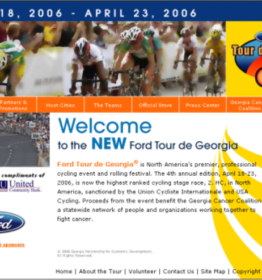RIAA Slapped with Antitrust Suit
(Internet News) A group of independent webcasters opposed to “unreasonably high” royalty rates has filed suit in federal court accusing the Recording Industry Association of America (RIAA) of antitrust violations.
The Webcaster Alliance, a trade group representing about 400 small online broadcasters, accused the RIAA of unlawfully inflating Webcasting royalty rates to force small webcasters out of business.
In the suit, filed in U.S. District Court for the Northern District of California, the Alliance said the Copyright Arbitration Royalty Panel (CARP) proceedings and a separate deal between large-scale Webcasters and the RIAA set “prohibitively high” royalty rates and did not represent the fair market value for the license rights.
The controversial CARP process eventually led to a rate structure that was later cut in half to set the per-performance fee at 0.07 cents per performance.
In the lawsuit, the Webcaster Alliance said the deal that emerged from the Small Webcaster Settlement Act of 2002 — between the RIAA’s royalty collection arm SoundExchange and a private trade association called Voice of Webcasters (VOW) — fixed royalty rates at a percentage of revenue and was a burden on many small webcasters.
The RIAA dismissed the lawsuit as a “publicity stunt.” In a statement, the RIAA said record companies and artists worked diligently to negotiate agreements with a host of new types of radio services, including commercial and non-commercial webcasters, adding that the Webcaster Alliance suit had no merit.
However, the Alliance argued in its suit that the “exclusionary licensing rates” set by the original Library of Congress rates and the VOW agreement would lead to “certain and imminent extinction.”
The Webcaster Alliance accused the members of the VOW association of being “willing co-conspirators” with the RIAA and the music labels to establish an anti-competitive agreement aimed at excluding competition in the webcasting market.
“One consequence of the VOW agreement has been to erect a significant barrier to entry in the webcasting market, that are not based on legitimate justifications. Once such barrier, for instance, is the four-fold increase in minimum fees in the VOW agreement, over the minimum fees set forth in the CARP and LOC rates,” according to the suit.
The alliance is a ruling that the RIAA violated the law in negotiating a rate structure with Yahoo that served as the benchmark for the CARP royalty rates and the deal with the VOW also violated the Sherman Act.
In addition, the Webcaster Alliance wants the courts to block the major record labels from enforcing their otherwise legitimate intellectual property rights in sound recordings until the alleged violations are remedied.




















